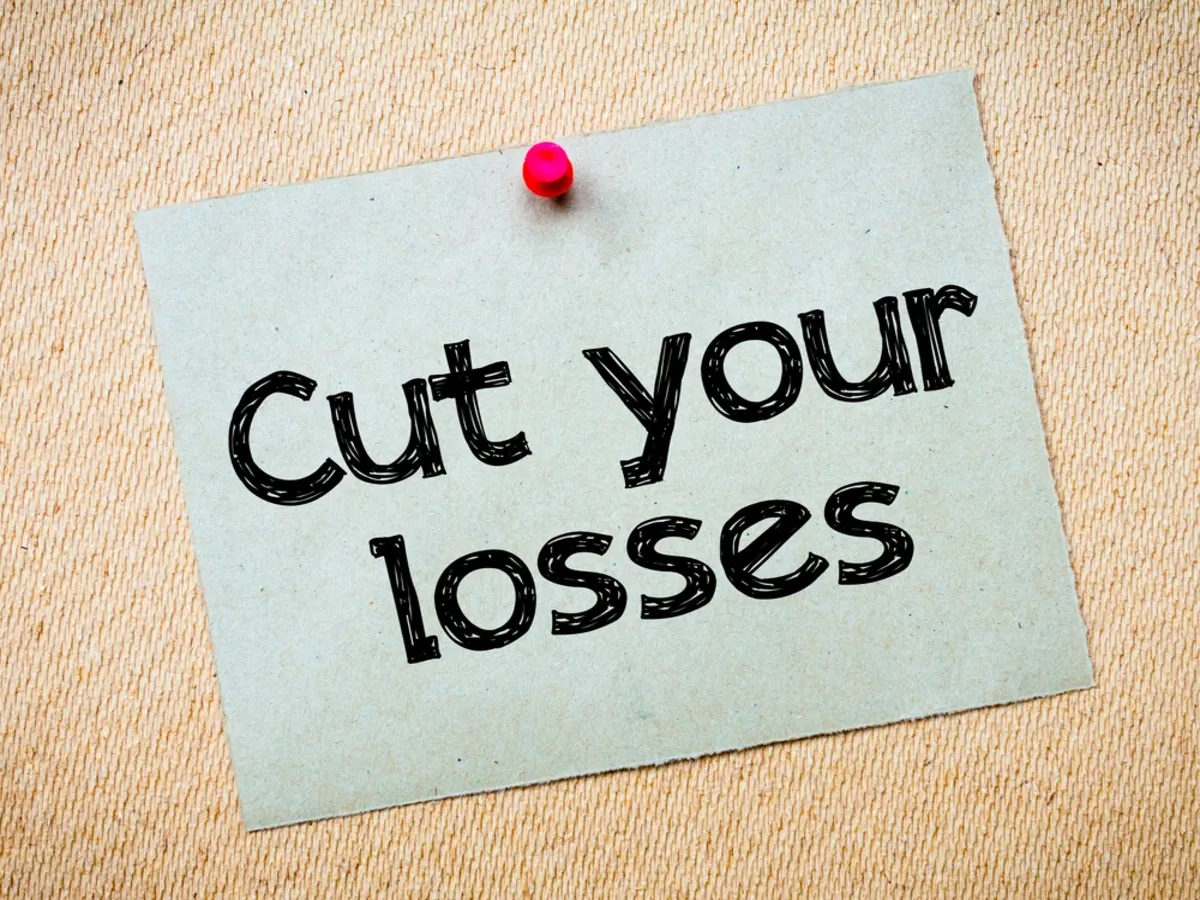Personal Finance News
Do you wait endlessly or know when to cut your losses?

5 min read | Updated on September 20, 2024, 12:36 IST
SUMMARY
Cutting losses is a crucial investment strategy, helping investors exit underperforming stocks to prevent further financial damage. This concept is similar to making decisions in daily life, such as switching to a new service provider when faced with repeated poor experiences. Holding on to bad investments or decisions can worsen the situation. Assess your investments carefully and act promptly to avoid compounding losses and ensure portfolio growth.

Do you wait endlessly or know when to cut your losses?
There was great convenience and ease in using an online app from which one can order organic vegetables and fruits. The experience remained on point for the first few months before things started to get a bit messy.
This recent mess up in my order, was the last straw. As I age, I find my ability to juggle multiple tasks in a day, declining. Hence, I placed this large order for fruits and vegetables, a tad last minute. The delivery was meant to happen between 7 am and 10 am. I waited nervously (lunch in my house is cooked for 8 people), the clock went past 10:15 am and there was no sign of the vegetables. When it did arrive, it was discovered that an incorrect order had been delivered to my house and none of those vegetables were of any use to me.
Now what?
I called the delivery person, who assured me that he would return to the warehouse and collect my order and deliver it soon. By afternoon and there was no sign of my order. By 10 pm, I had made three calls to the customer service and there was no update. They couldn’t even give me an estimate of when the likely exchange would happen. Vegetables are perishable and a quick exchange is critical.
The next morning, I asked the customer service to cancel my order and process the refund. They informed me that the refund would be processed once the pick-up for the incorrect order was done. I was a bit annoyed; the pick-up is really not in my control. In fact, none of what went wrong was in my control. However, I realised that if the exchange hadn’t happened in a day’s time, it’s unlikely that it would happen at all. A company that delivers perishables needs to ensure that any replacements or exchange happen quickly.
I had spent about Rs 1000 on my order, paid online. I could keep calling them and insisting for the refund and they would keep telling me about their policy of pick up (of the incorrectly delivered order) first and we would go back and forth. The only outcome of that would be a very annoyed me and a whole lot of wasted time. And so, I let it go.
I have changed my vegetable delivery partner and basically, cut my loss.
What does cutting your losses mean?
In simple terms, cutting your losses is about not pursuing a particular course of action or continuing with a trade so that an already bad situation doesn’t become worse.
When it comes to investing, cutting losses refers to selling your shares or funds that are in the red so that you can make space for something better. It’s easy to write about this, but very hard to implement. No one like to realise a loss knowingly.
Human beings are eternally optimistic and when we see a stock in our portfolio which is say 20% lower than the purchase price, we hope that it will revive sometime in the future and keep holding on to it. Then it drops another 20% and we are now unsure and wait and watch. Then finally it becomes a penny stock and we buy more thinking, there is only one way for the stock to proceed and that’s up. There are so many stocks like this that people have lost so much value in, simply because they are unable to cut their losses and use whatever money they get out of it to invest in something better.
It's not just stocks, this behaviour of not admitting that you have made an investment mistake and taking out money at a loss is, prevalent for real estate and even insurance policies. People buy expensive endowment plans, realise their mistake in a couple of years and yet are unable to stop paying premiums, because they don’t want to lose what they have already paid.
Putting good money into a bad decision is only going to compound that bad decision, it won’t make it better.
What’s sunk is gone
The question is, how can you now cut your losses? Cutting losses is about not losing more money than you have already lost.
Firstly, if your investment is not doing well, investigate if it is related to market sentiment in general or is it a specific event around the stock etc you are investing in? If it is sentiment related, you know that the pick-up will happen when then sentiment turns around. If it is specific, you then need to figure out if it is a temporary issue or something that can be recurring and long lasting. The latter then requires you to assess the damage more thoroughly. Step two is to figure out if all similar investments, say in the same sector are also impacted in the same way. If that is true, then it could be a bigger systemic issue. In both the cases, you may want to find an alternate investment which is a better opportunity to grow your money.
Leaving your money in a poorly performing investment, in the hope that it will get better, is no good. Short term traders have strict stop losses which enable them to limit downside when things go wrong. For long term investors because the time lines are not defined, losses can compound for much longer, pulling down the overall portfolio return. You need to do your research on what step to take next.
Cutting your losses is about filtering out poor quality and holding back good quality where there is brief hiccup. You can define your own time and price cut offs beyond which you will cut your losses. Else it can become a never-ending wait. I am still to hear back from the vegetable delivery app about the pick-up for the incorrect order that got delivered to my place, thankfully I cut my losses and moved on.
By signing up you agree to Upstox’s Terms & Conditions
About The Author
Next Story

